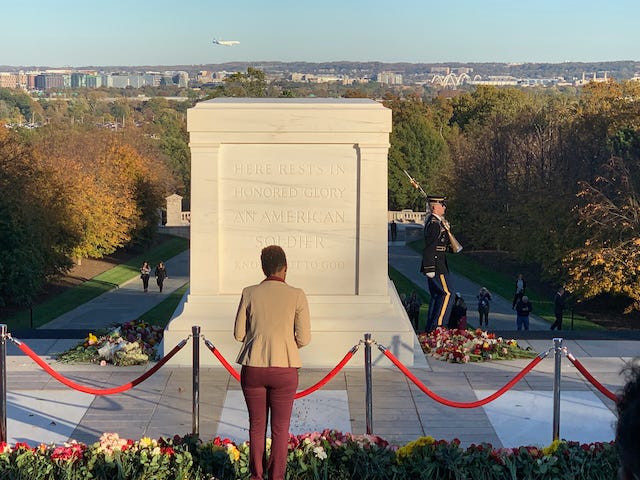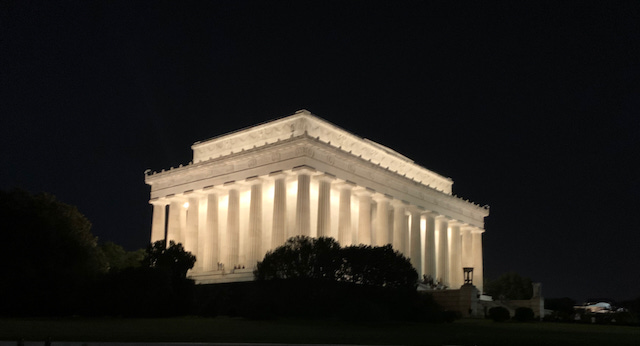Thinking about What Memories Are, Mean, As We Come to Memorial Day
What Memories Do for Us, to Us, Individually, Institutionally, and Culturally
Next Monday’s Memorial Day (observed), the day set aside to remember the nation’s war dead. I know I’m not the only one who has cringed over the fact that, at a certain point, Memorial Day (and really, almost every U.S. holiday) feels more about sales and hot dogs than a national remembrance. So this year, I decided to head into Memorial Day, by reflecting on why these days have such significance. What exactly does a day of memory do for us, as a people, as individuals?
“Let their remembrance be as lasting as the land they honored.”
—Daniel Webster
Memories: Dynamic, Not Fixed. Shared, Not Singular
Conversations about memory often begin by saying that memory’s purpose is about learning. But it’s much broader than recalling facts and figures. As a team of Belgian researchers explained, “Human memory makes it possible to encode, preserve, transform, and restore lived experiences and transmitted knowledge.”
Memories are dynamic, not fixed. And it’s not just that memories can grow hazy over time. Memories can change depending on the context—particularly a social one.
Memories are about identity and connection. For example, a “flashbulb memory” describes a memory of where you were, what you were doing, when you learned about a historical event (e.g., the Challenger explosion, 9/11, Sox/Cubs/Nats win the World Series). But whether the incident is significant enough to result in a flashbulb memory is often tied to social identity. And flashbulb memories are often very vivid—but about your sense of personal connection to the event, and not the event itself.
When it comes to things like Memorial Day, the value is in creating a “collective memory.”
Collective memory describes when a group of peoples share a construct of the past. The community decides what to remember—what stories it will tell and which it might forget. And to do so, it shares stories, symbols, artifacts, and traditions. By doing so, it honors the past and explains why people should bring the past into their present. Memories form a national identity.
"Without memory, there is no culture. Without memory, there would be no civilization, no society, no future."
— Elie Wiesel
Quick Shots
In a survey of 2,000 British, American, and Canadians who were either married or in a committed partnership, one in four admitted to having forgotten their anniversary at least once.
But, in other contexts at least, forgetting isn’t always a bad thing. Forgetting allows you to move past negative events and think about the person you want to be.
Forgetting even allows you to be more creative because you aren’t locked in by expectations that would have come from recalling all your past experiences.
“Organizational memory” is the sum of an institution’s knowledge—including “hard” memories (i.e., ideas codified into policies and protocols) and “soft” memories (i.e., culture and shared values).
False memories can be a social contagion—you can “catch” someone’s misremembered fact just as you can catch their yawn.
“We actually don't choose between experiences, we choose between memories of experiences. And even when we think about the future, we don't think of our future normally as experiences. We think of our future as anticipated memories.”
—Daniel Kahneman
Do You Want It to Be Good or Do You Want It to Be Memorable?
Paul Rozin is a psychologist who studies the psychology of food—how culture, personal preference, and more shape what we eat. Rozin was once lecturing when he offered a menu-related twist on Nobel Laureate Daniel Kahneman’s research on memory.
Rozin said to imagine that you go out to dinner at a new restaurant. You’re trying to decide between the Fettuccini Alfredo or the chef’s wild special of the day. The fettuccini is a safe choice. It’ll probably be good because fettuccini is roughly the same thing everywhere. But the price for safe and good means it’s instantly forgettable. On the other hand, the chef’s special could be terrible or wonderful. But either way, it’s going to be memorable.
So it isn’t about the entree. The real choice we must make is:
Do you want it to be good or do you want it to be memorable?
In Your Sight:
To remember something you’re learning, quiz yourself on it. Then wait a day or so (to let your memories consolidate), and do it again.
When there aren’t clear guideposts, institutional memory can help you find a way. But pay attention to what you rely on and what you overlook. In one study, people relied on past actions to guide them if those actions had had the expected outcome. But they ignored the history when it led to an unanticipated result.
Remind teammates that asking for information isn’t admitting failure. It’s spreading organizational memory (i.e., knowledge) and therefore strengthening the team’s resilience.
When you’ve forgotten what you’ve come in the room to get, the reason it works to go back and come in again is that it helps to retrieve a memory if you’re in the same environment when you encoded the memory.
In one study, novice scuba divers learned to read a compression chart and then took a test to see if they use the chart. But if the divers had first seen the chart while they were underwater, on average, they scored 64% better if they took the test when they were back underwater.





